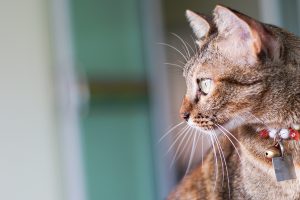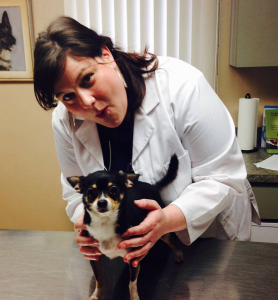
I have a recurring dream. I’m back in school and finals are coming up. I haven’t been to class once all semester. I haven’t read a single book, taken a single quiz or submitted a single paper. I know nothing about the topic and I need to ace the final to have a shot at passing this class. My chest feels tight with panic. I need to study but I’m so overwhelmed I don’t even know where to begin. I’ll never be able to fool my professor—or myself—into believing I know my stuff. I am going to fail. I’m a fraud, an imposter, and I’ll never be able to pull this off.
It doesn’t take Freud to interpret this one. It’s my subconscious fear that I’ll never be prepared enough, smart enough, hard-working enough; that I’ll just plain never be enough. I put on my white coat and call myself “Doctor”—but who am I fooling? I am not alone in this feeling. In fact, it is so ubiquitous, not just in veterinary medicine, but in life, that it has a name—imposter syndrome.
Becoming a Syndrome Victim
Imposter syndrome was a term first coined in 1978 by psychologists Pauline R. Clance and Suzanne A. Imes to refer to high achieving women who felt like phonies. Despite their accomplishments, these women were plagued by feelings that they were not worthy of their successes. They attributed their achievements to luck or to fooling others into believing that they were smarter and more successful than they believed they were. Although imposter syndrome has traditionally been thought to primarily affect women, subsequent studies show that men may be just as affected.

As veterinarians, it’s easy to fall victim to imposter syndrome. We, as a group, tend to be perfectionists and the stakes of our job are high.
Many of us toil away in internships and residencies learning to become “the expert” for so long that it can be hard to wrap your head around the fact that you now are. For those of us who skipped the residency track to become general practitioners, we literally go from student one day, to the doctor the next; needing to make tough calls and life and death decisions with a moment’s notice and no back up.
We don’t feel prepared. We beat out the best and the brightest to get our spot in veterinary school but we don’t feel like the best and the brightest. When we graduate it feels like all we’ve learned during those four years of studying, lectures, wet labs and rotations is how much we don’t know. The more we learn and experience during our years of practice, the more we realize how much more we need to learn and experience.
No One Is Perfect
Even now, with eight years of practice under my belt, I am constantly being proven wrong. I can confer with two of my colleagues on a case and leave with three different opinions. I can submit x-rays for a radiology consult and get back a report that looks nothing like my interpretation. That one case that I got wrong looms large in my mind, drowning out the dozens I got right. Even if I got the case right eventually, the mere fact that I didn’t immediately see that femoral neck fracture on the x-ray or consider the possibility that Sammie’s chronic vomiting could be a sign of Addison’s eats at me, reminding me that I am not good enough.

Most days I am able to realize that no one is perfect. I will never know all the answers, and that as long as I am humble enough to accept when I don’t know something, and seek out the answer, that I can consider myself a good vet.
Experience, time, and the knowledge that I am not alone in my fears have made my recurring dream come a little less frequently. It will likely never go away completely, but when those doubts rear their ugly heads, I try to remind myself of the positive. I try to remember the grateful clients, and their kind words. Most importantly, I don’t keep it all inside. When a mistake or bad outcome is eating at me, I talk to my colleagues. Most of the time, I wind up reassured that I handle things better than I thought, and that they have felt the same way many times. I am reminded that I am not am not alone. I am not an imposter.
The views and opinions expressed in this article are those of the author and do not necessarily reflect the position of the DrAndyRoark.com editorial team.
 About the Author
About the Author
Dr. Lauren Smith graduated in 2008 from Ross University School of Veterinary Medicine and completed her clinical year at Cornell University. Her professional interests include internal medicine, preventative medicine and client education. Dr. Smith lives and practices on Long Island with her cat, Charlie and dog, Frankie and loves to read write and run in her free time. You can check out more of her writing at laurensmithdvm.com